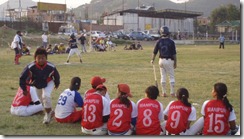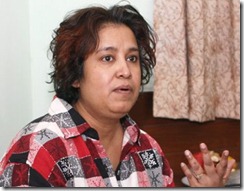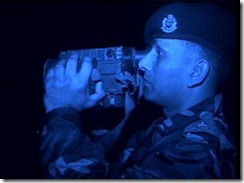Sinlung says:
I know and read of some stories about Baseball in Manipur. But have never heard of Americans playing baseball in Manipur, coming from Manipur – this really is news to us. Anyway, decide it for yourself
By Annie Charnley Eveland
 Baseball, the Great American Pastime, helped Northern and Southern Civil War troops escape battle's realities.
Baseball, the Great American Pastime, helped Northern and Southern Civil War troops escape battle's realities.
The same pursuit continued when American troops played baseball while wearing combat boots instead of spikes and flight gloves instead of fielders' mitts during World War II. Baseball became the Great Manipuri Pastime when airmen such as Walla Walla's Theron "Smitty" Smith picked up a bat and ball in games played at Imphal airstrip in the remote northeastern corner of what is now India.
Smith was a 22-year-old pilot of Curtis 46 and C-47 transport aircraft that hauled supplies to Imphal. He and fellow pilots navigated The Hump, through the treacherous Himalayan mountains to the airstrip near the Burma border.
Stationed in the China-Burma-India Theater, they brought supplies to Chinese troops via the only passable route, since the Japanese occupied coastal areas.
It was rough going Smith said in a Union-Bulletin interview in 2000. "One day we lost 75 planes while flying The Hump, due to the weather. We were battered in gale-force winds and our ships iced up."
Baseball helped them unwind.
For several hours Smith, 88, reminisced on camera about his time with the U.S. Army Air Corps while being filmed at home on Feb. 19 and 20.
He was tracked down by New York film director Mirra Bank, who is making a documentary with the working title "A Way Home." It's about the positive impact baseball is having on the war-torn community at Imphal, Manipur's capital.
Surrounded by newspaper clippings, photos, medals, military patches and other mementos, Smith spoke with Bank, her husband, writer and film producer Dr. Richard Brockman, and freelance camera operator for this local shoot, Greg Ritchie of Spokane.
A second lieutenant in 1944 when he was mobilized, Smith played first base during those impromptu games.
Manipuri polo may be the state game, but more than six decades later, baseball has been embraced in Imphal.
Despite restrictions and special permits required to get into Manipur, Bank and Brockman have visited the area several times to explore baseball's impact.
They say Manipur has been at war with the Indian Army for at least 50 years. Its people want to secede from India and gunfire on Imphal's streets is commonplace.
The area has a serious problem with heroin production and drug trafficking; rampant HIV/AIDS devastates families and there's no real economy to speak of, Brockman said.
The people of India just don't play baseball, Brockman said. He and Bank were intrigued when they learned about Imphal's baseball enthusiasts from friend L. Somi Roy, a direct descendant of royalty from Imphal.
In Imphal, baseball gives many hope, Brockman said. The filmmakers' curiosity about its origins in Imphal and connection to the U.S. military during World War II led them to Smith and another surviving airman who had served there.
Based on observations about its affect on Imphal's players, Bank said, "There's something about playing the game that takes you out of difficult pressures. It is joyous and elevates you.
"Baseball is about individuality and being a team. It's specific to the sport and why they're attached now. They are strong and dedicated."
There are nine organized teams in Imphal, Bank said, including four women's teams. They range from ages 8 or 9 into their 20s, she said, then they become coaches. But even little ones come to the games and learn to catch.
The women see it as an investment and a way to keep the children safe from violence, drugs and other seductive dangers, Bank said. They're strong and drug-free, tied to a positive, structured experience.
"Once they get out of school, they play sports. There is an intense commitment to baseball, separate from cricket and polo. They are proud of their trophies and winning," Bank said.
Calling themselves First Pitch, the documentary crew has raised funds solely through private sources for this project, which has been under way for several years. They've connected with the Major League Baseball Envoy program, which goes into Third World countries.
First Pitch would like to see a baseball field built in Imphal. Right now, teams play on a rough field through which horses run.
Lalit, a young man shown in scenes from "A Way Home," starts his day playing baseball. He says he's not a good student but wants to be a great baseball player. He describes himself as the best catcher in Manipur, holds up a beribboned medal he's placed around his neck and kisses it.
He's inspired by the cheers of friends and other spectators and says he performs his best then.
He wants to play in the United States.
"We always feel something good is in store for us with baseball," Lalit said. "For me, baseball is like breathing. It is my whole life. And let me just say, I'll never stop playing."
When in Imphal, Brockman applies his skills as a physician and helps coach as well as play shortstop. Bank is a lefty and plays first base.
"Manipuri women, men, kids and adults have kept the Great American Game alive and well in troubled, isolated Manipur, despite immense obstacles," Bank added.
"In a more or less ongoing environment of grievance and conflict -- baseball confers a sense of freedom and connection to the outside that nothing else does. Soldiers and civilians, people of all political persuasions love the game equally."
"There is a hopeful future for them. Baseball opens a door to the world to come in and for them to go out," Bank said.
And the ball got rolling more than 65 years ago when young American service people, including Smith, tossed one around to blow off steam.
via union-bulletin and the author can be reached at annieeveland@wwub.com
 New Delhi, Mar 2 : Exiled Bangladeshi writer Taslima Nasreen on Tuesday said the appearance of an article in a Karnataka newspaper purportedly written by her, which triggered violent protests in Shimoga and Hassan towns, is a "deliberate attempt to malign" her and "misuse" her writings to create disturbance in the society.
New Delhi, Mar 2 : Exiled Bangladeshi writer Taslima Nasreen on Tuesday said the appearance of an article in a Karnataka newspaper purportedly written by her, which triggered violent protests in Shimoga and Hassan towns, is a "deliberate attempt to malign" her and "misuse" her writings to create disturbance in the society.




![s-DUBAI-large[1] s-DUBAI-large[1]](http://lh5.ggpht.com/_qQQQg0ODhzo/S4zyMWPDo8I/AAAAAAAAGk0/xjcoRtVrSc0/s-DUBAI-large%5B1%5D_thumb.jpg?imgmax=800)







